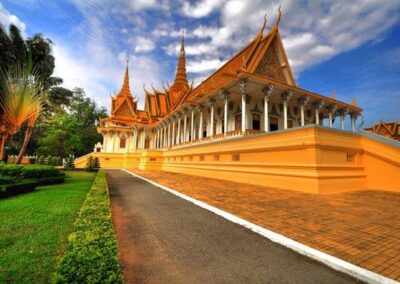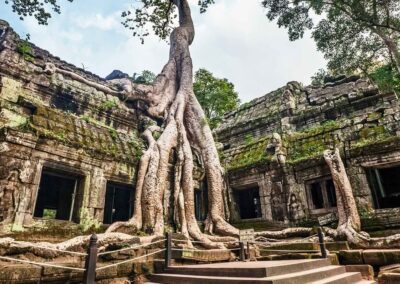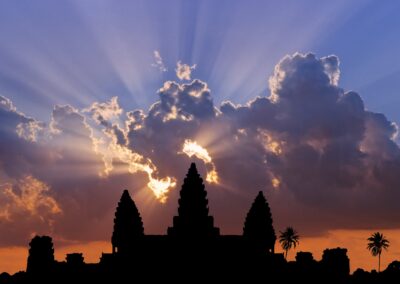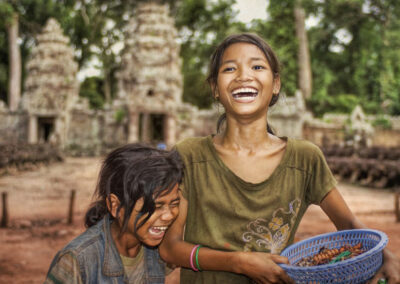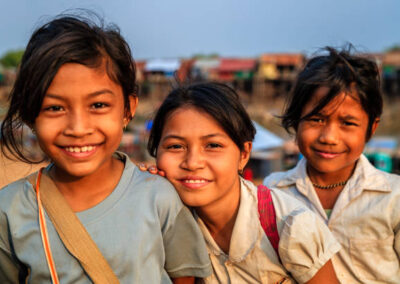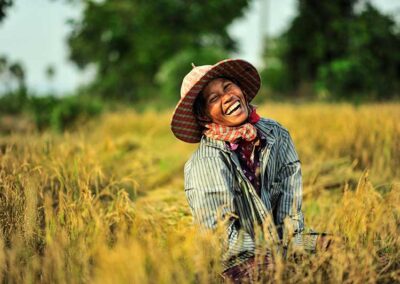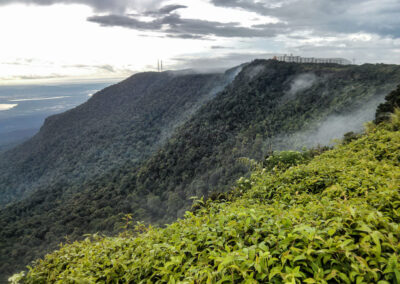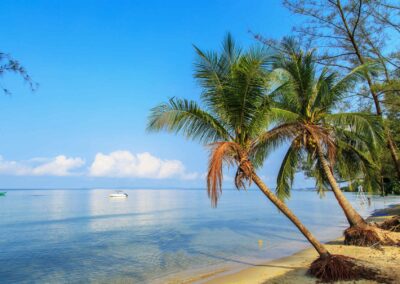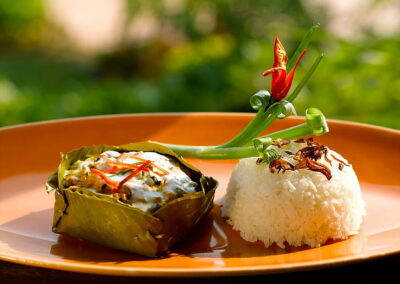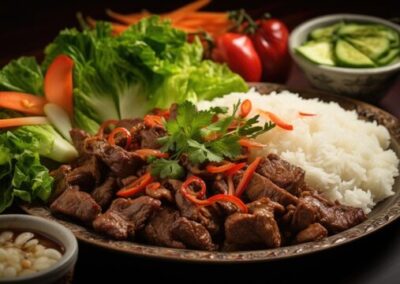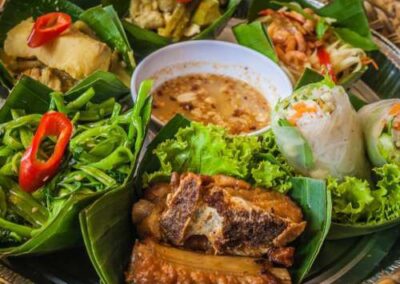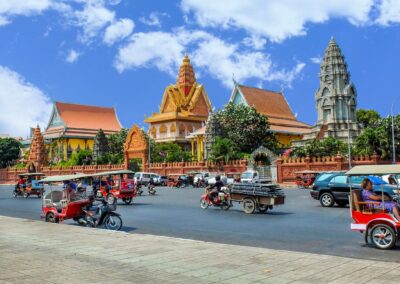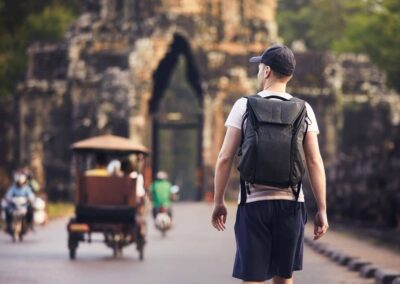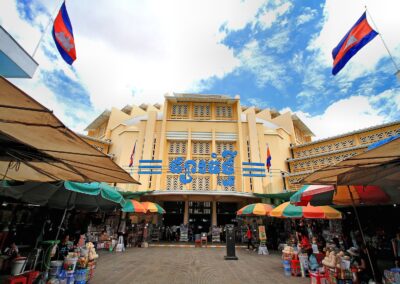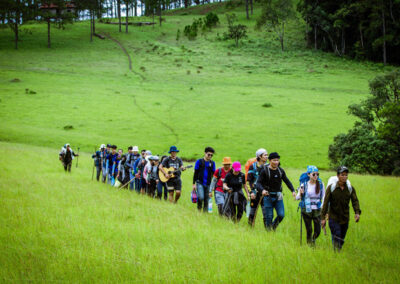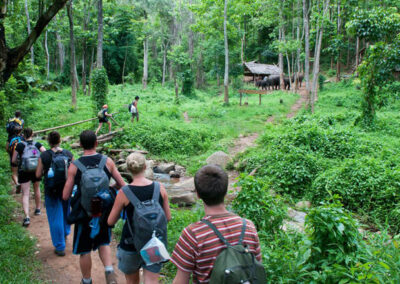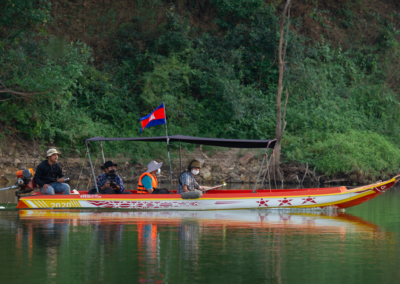Why Cambodia?
For a seriously off-the-beaten-path experience with world-class service, look no further than Cambodia, the “Kingdom of Wonders.” That name certainly isn’t unearned; from the world-renowned (and 8th Wonder of the World), Angkor Wat, to the bustling cities of Phnom Penh and Siem Reap, your travelers will be in awe of the land of contrasts, its easy pace of life and constantly-smiling locals.
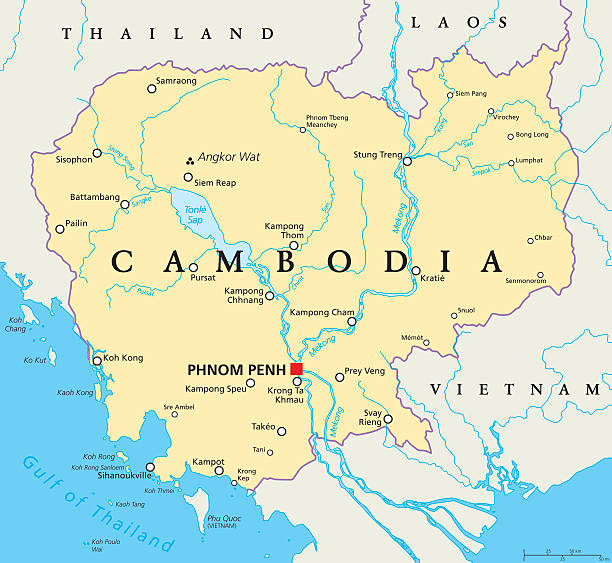
- Visa & Travel Permission
- Direct from Cambodia Embassy Abroad Before Departure: You can apply for a visa at a Cambodian embassy or consulate in your home country before departure.
- E-visa: Cambodia offers an e-visa system for citizens of eligible countries. You can apply for the e-visa online through the official website.
- Visa On Arrival
- Visa at the border
- Visa With Apsara Travel
- Visa Express service (VIP)
- Emergency Contact
- Ambulance: 119
- Fire department: 118
- Police: 117 or 118
- Calmette Hospital (Phnom Penh)
- Pasteur Institute in Cambodia
- Royal Angkor Hospital, (Siem Reap)
- Money & Budget
- National Currency: Cambodian Riel (KHR). US Dollars are also widely accepted.
- Credit Cards: Accepted in major hotels, restaurants, and tourist establishments. However, it’s advisable to carry enough cash, especially in rural areas or small businesses.
- ATMS: Available in major cities and tourist areas.
- Tips: Tipping is not expected but appreciated for good service (5-10% of the bill is common).
- What to Prepare?
- Pre-departure Tasks: Passport with at least 6 months validity from the date of arrival.
- Clothes
- Pharmacy
- ID pictures for visa
- At least 30 USD in cash for the visa fee
- Passport and important documents’ photocopies in case of loss
- Passport-sized photos for visa application and arrival/departure cards.
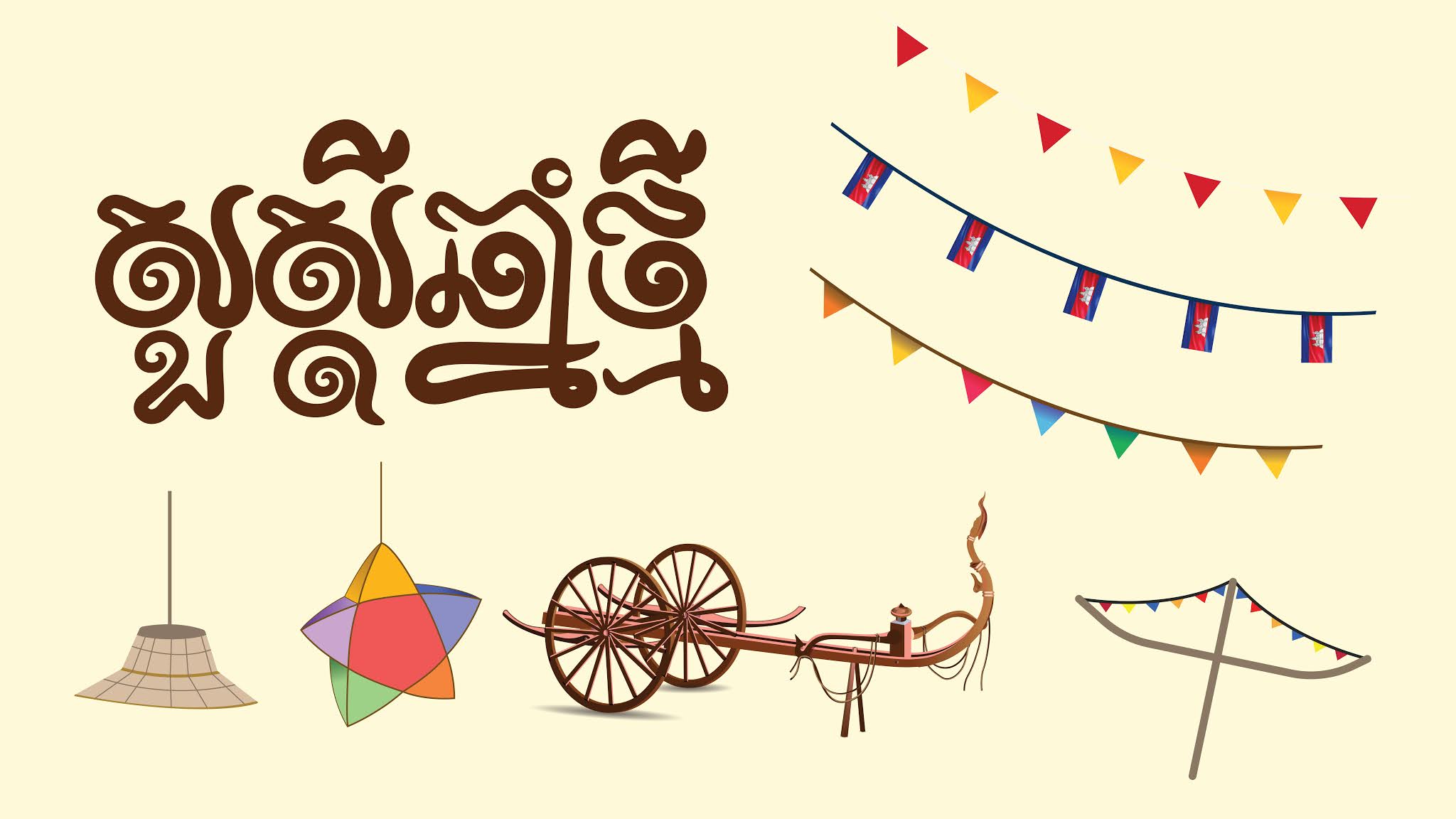
April
Cambodia
Khmer New Year
The Khmer New Year Festival Festival, also known as Choul Chnam Thmey, is a vibrant and joyous celebration in Cambodia. It marks the beginning of the traditional Khmer calendar year and is a time for families and friends to come together, honor ancestors, and pay homage to deities. The festival is characterized by colorful decorations, […]
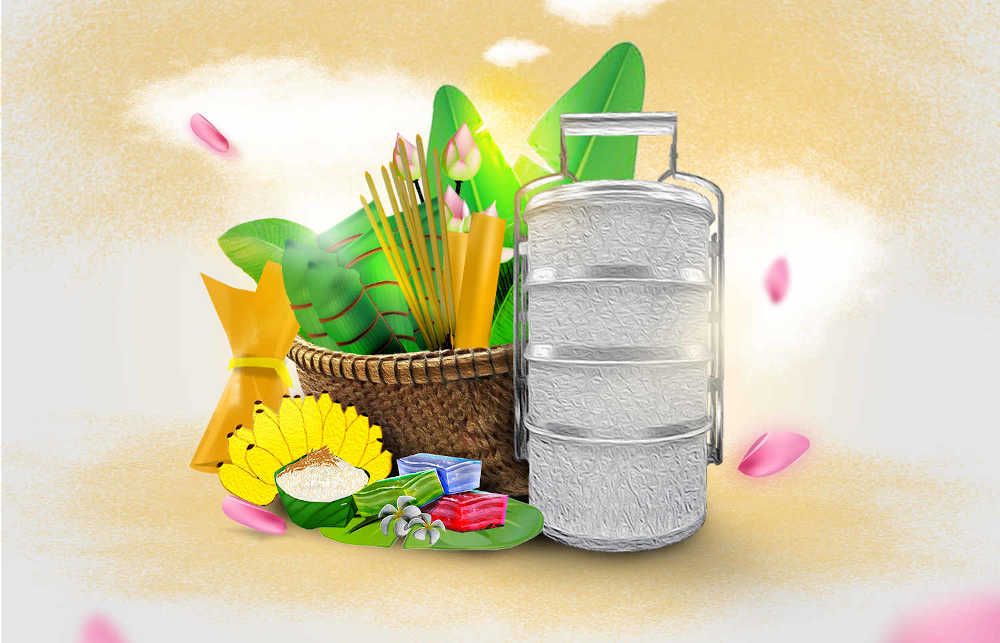
October
Cambodia
Pchum Ben Ancestors Days
Pchum Ben, also known as Ancestors’ Day, is a significant religious festival in Cambodia. It lasts for 15 days and takes place in September or October. Cambodians believe that during this time, the spirits of their deceased ancestors return to the earthly realm. Families visit pagodas and temples to make offerings to monks, who perform […]
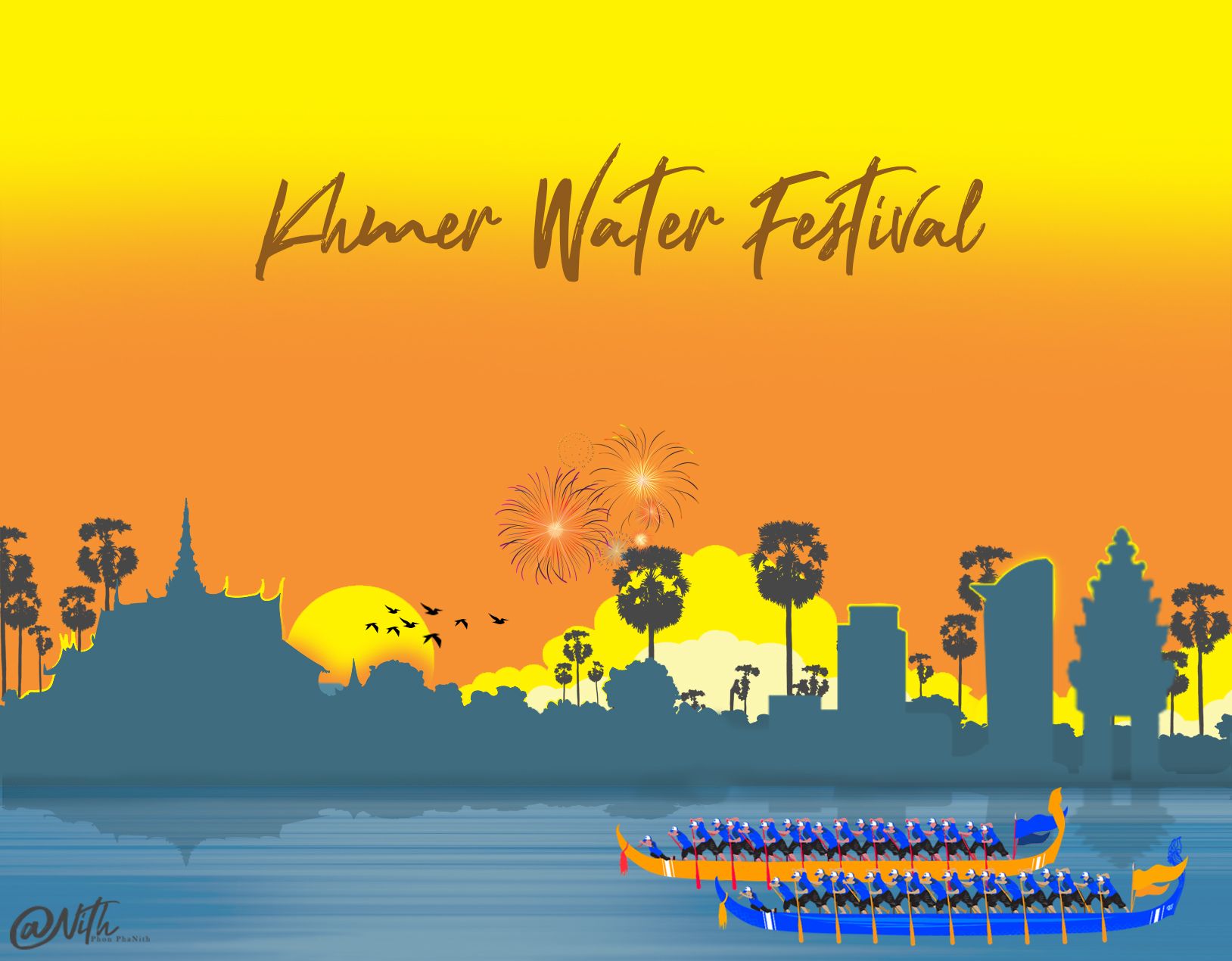
November
Cambodia
Water Festival
The Water Festival in Cambodia, also known as Bon Om Touk, is an annual event held in November to mark the end of the rainy season and the beginning of the harvest. It is a vibrant celebration that brings together people from all walks of life. The festival features boat races where teams compete in […]
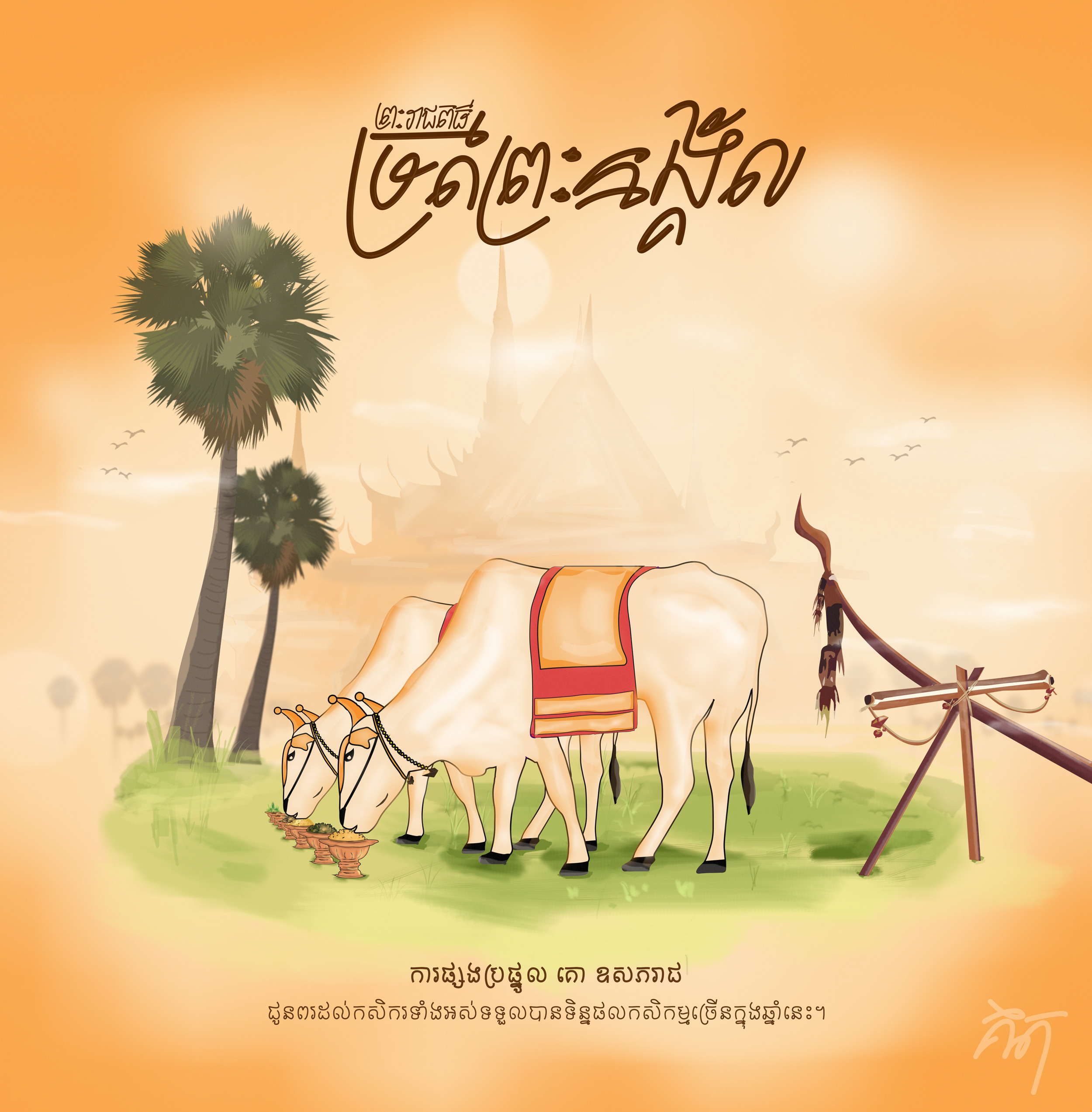
May
Cambodia
Royal Plowing Ceremony
This festival, known as the Royal Plowing Ceremony, or Bon Chrat Preah Nongkoal, is a significant event held annually in May in Phnom Penh. It is deeply rooted in Cambodian culture and serves as a traditional ceremony to mark the beginning of the rice-growing season while seeking blessings for a bountiful harvest. During the festival, […]
Cambodia’s Tour Package
Indulge Li Europan lingues es membres del sam familie. Lor separat
existentie es un myth.
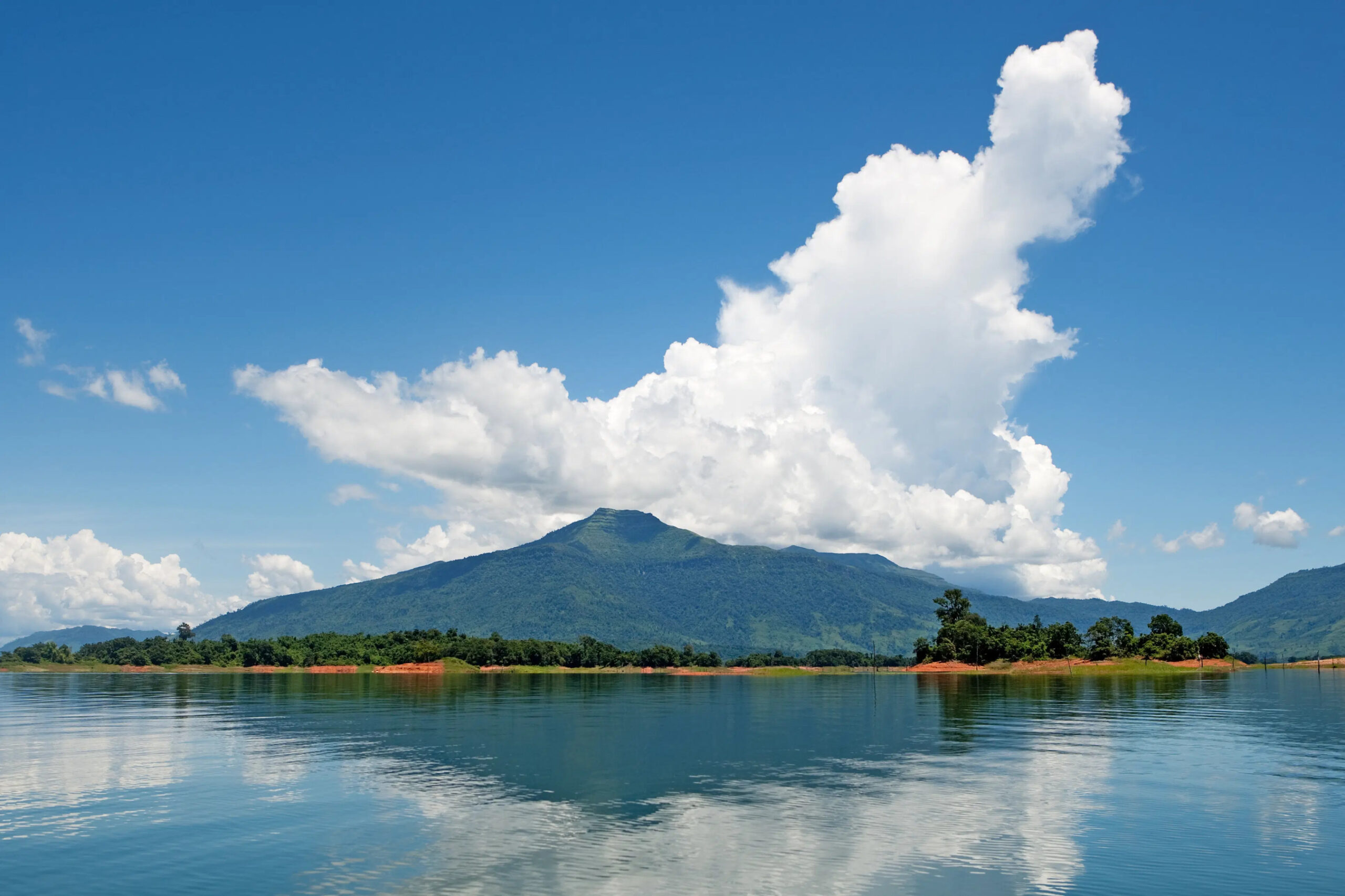
Cambodia
3 - 6 Days
VIENTIANE CULTURAL DELIGHTS & NAM NGUM LAKE ESCAPE

Cambodia
7 - 10 Days
Cambodia Adventure Escapade
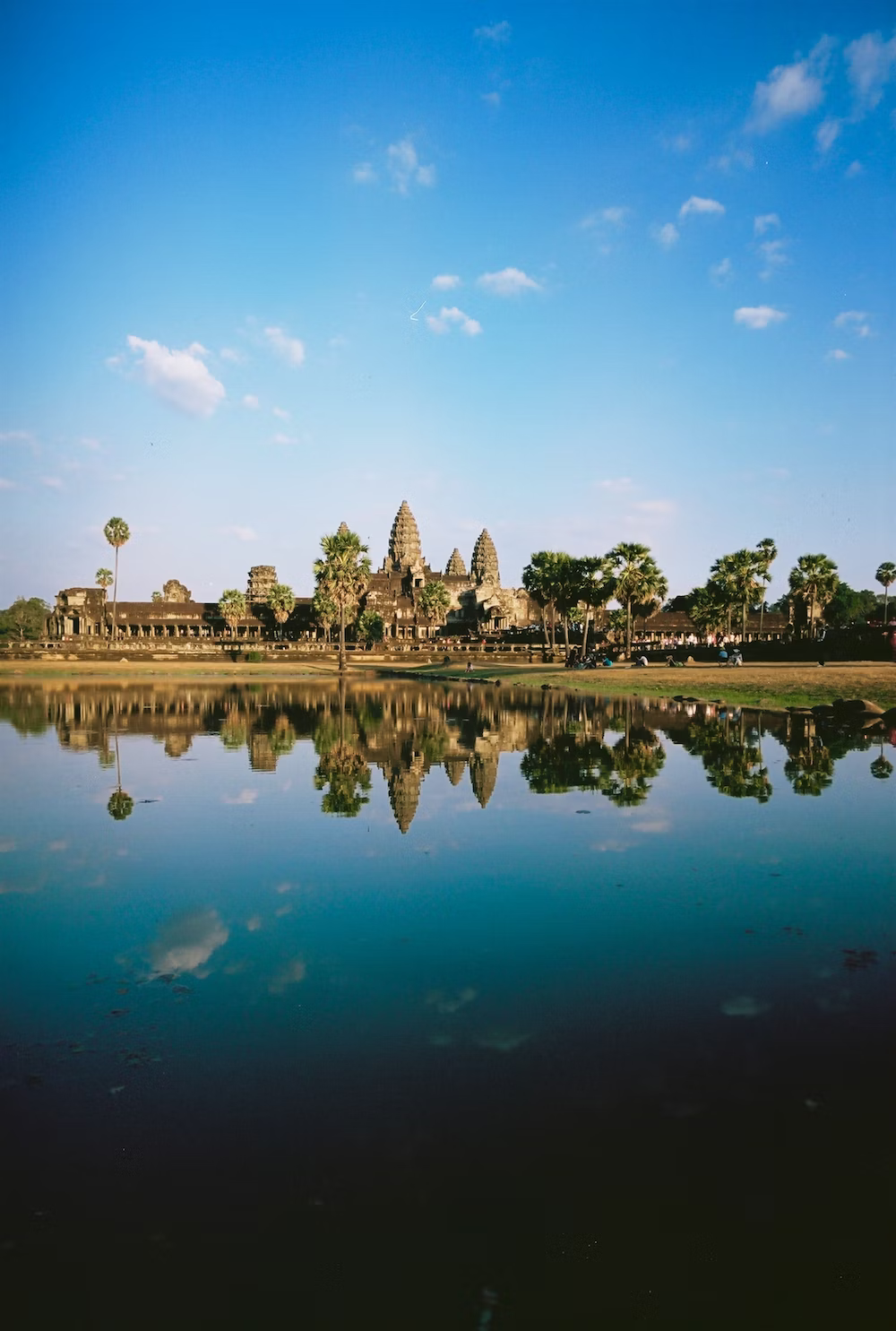
Cambodia : Cambodia & Thailand
3 - 6 Days
CAMBODIAN HERITAGE TRAIL: SIEM REAP AND PHNOM PENH
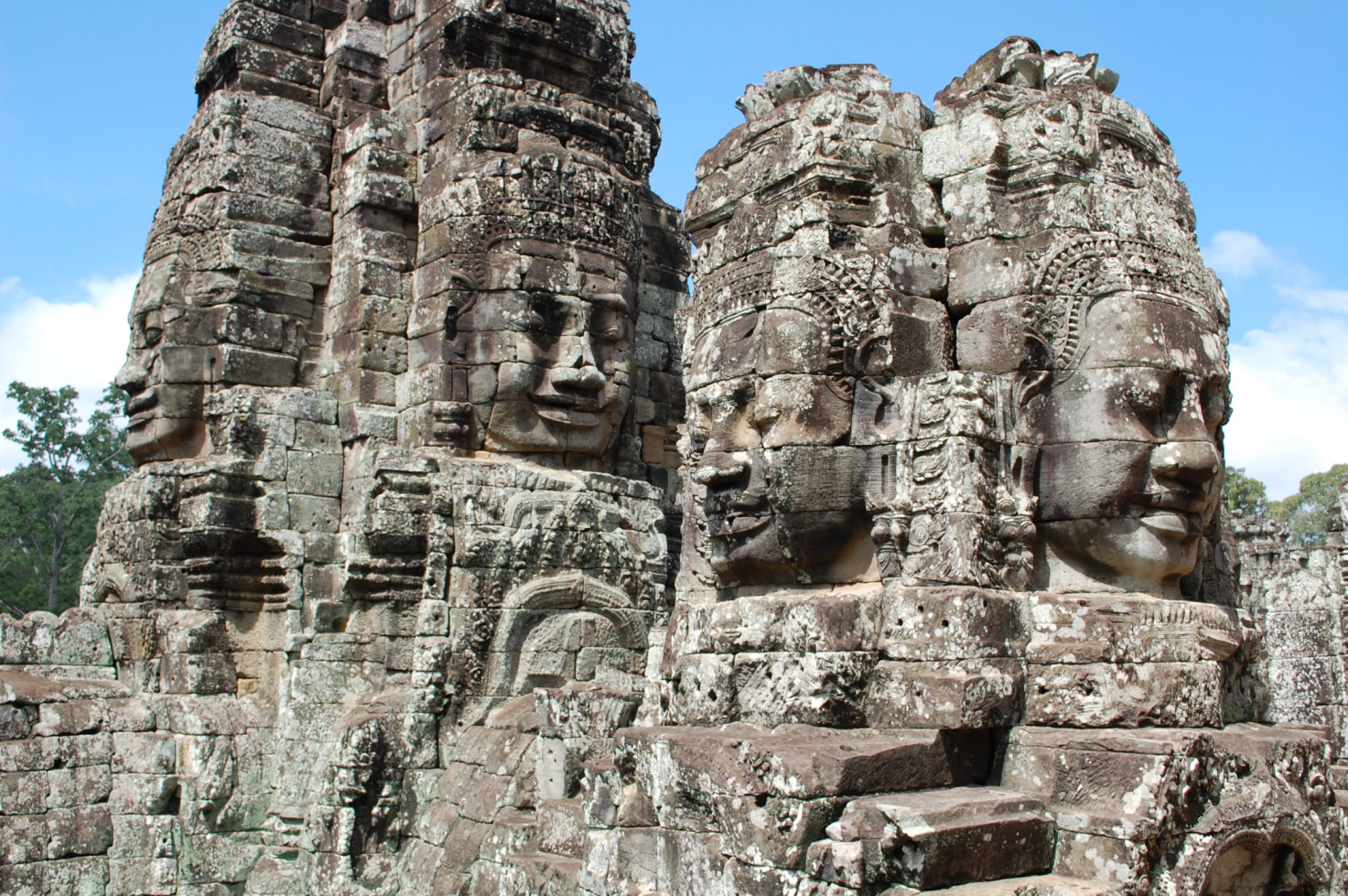
Cambodia
7 - 10 Days
SMILE OF CAMBODIA
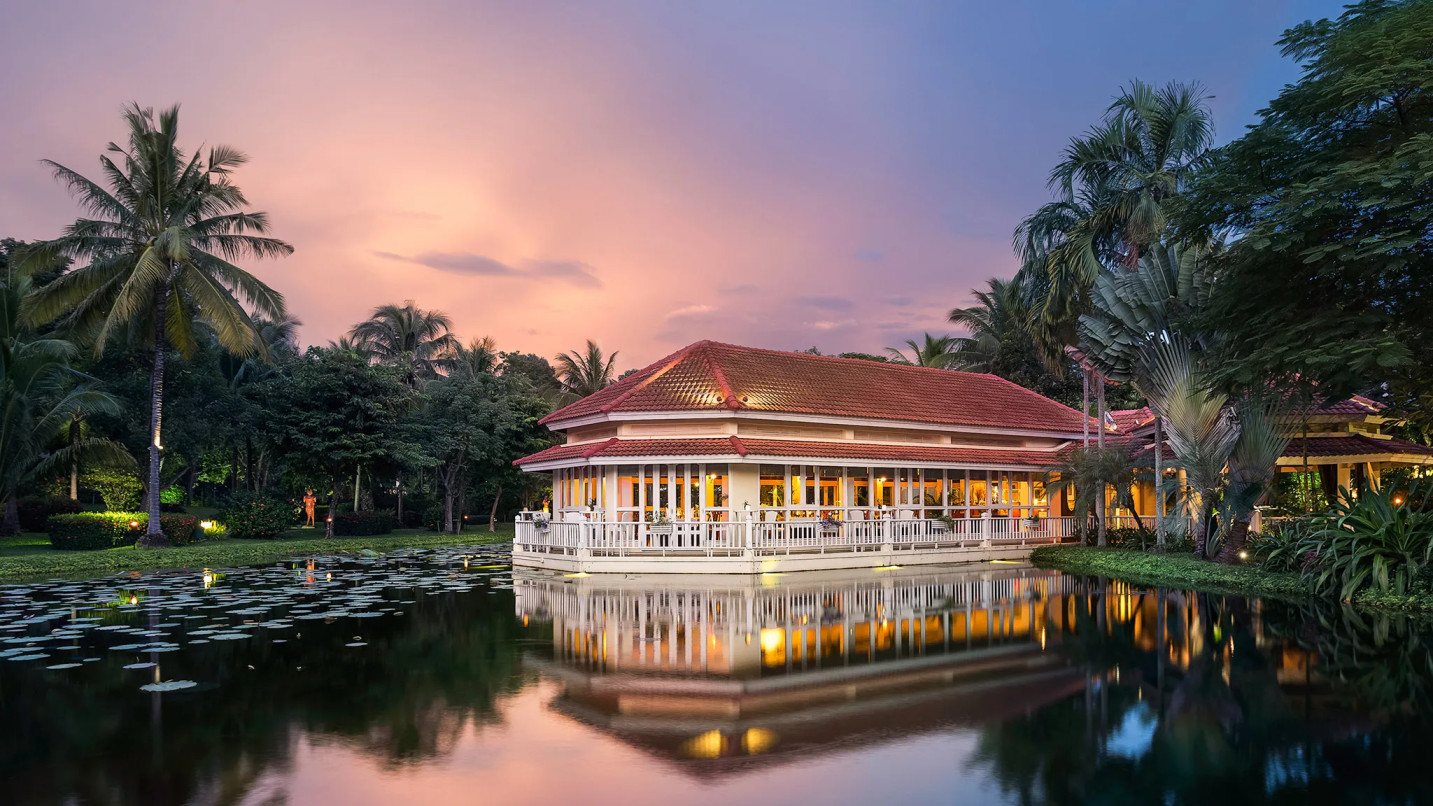
Cambodia : Cambodia & Laos
3 - 6 Days
ESSENCE OF CAMBODIA

Cambodia
3 - 6 Days

